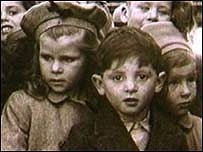
Back رعاية بديلة Arabic Acolliment Catalan Pěstounství Czech Familiepleje Danish Pflegeverhältnis German Acogimiento familiar Spanish Eestkostja ET Familia-harrera EU سرپرستی موقت FA Sijaishuolto Finnish

Foster care is a system in which a minor has been placed into a ward, group home (residential child care community or treatment centre), or private home of a state-certified caregiver, referred to as a "foster parent", or with a family member approved by the state. The placement of a "foster child" is normally arranged through the government or a social service agency. The institution, group home, or foster parent is compensated for expenses unless with a family member.
The state, via the family court and child protective services agency, stand in loco parentis to the minor, making all legal decisions while the foster parent is responsible for the day-to-day care of the minor.
Scholars and activists have expressed concerns about the efficacy of foster care services provided by non-government organisations.[1] Specifically, this pertains to poor retention rates of social workers. Poor retention rates are attributed to being overworked in an emotionally draining field that offers minimal monetary compensation.[1] The lack of professionals pursuing a degree in social work coupled with poor retention rates in the field has led to a shortage of social workers and created large caseloads for those who choose to work and stay in the field.[2][3][4] The efficacy of caseworker retention also affects the overall ability to care for clients. Low staffing leads to data limitations that infringe on caseworkers' ability to adequately serve clients and their families.[3][4]
Foster care is correlated with a range of negative outcomes compared to the general population. Children in foster care have a high rate of ill health, particularly psychiatric conditions such as anxiety, depression, and eating disorders. One third of foster children in a US study reported abuse from a foster parent or other adult in the foster home. Nearly half of foster children in the US become homeless when they reach the age of 18, and the poverty rate is three times higher among foster care alumni than in the general population.
- ^ a b Paddock, Christina; Waters-Roman, Debra; Borja, Jessica (2013-06-11). "Child Welfare: History and Policy". Encyclopedia of Social Work. doi:10.1093/acrefore/9780199975839.013.530. ISBN 978-0-19-997583-9. Retrieved 2022-11-30.
- ^ Corkran, K (2006). "Principal Agent Obstacles to Foster Care Contracting". Journal of Law, Economics, & Policy HeinOnline. Retrieved November 29, 2022.
- ^ a b Chipungu, Sandra Stukes; Bent-Goodley, Tricia B. (Winter 2004). "Meeting the Challenges of Contemporary Foster Care". The Future of Children. 14 (1): 74–93. doi:10.2307/1602755. JSTOR 1602755. PMID 15072019.
- ^ a b Reimer, Daniela (May 2021). "Better quality in foster care in Europe : how can it be achieved?". European Commission. doi:10.21256/zhaw-22698. S2CID 238049851.
{{cite journal}}: Cite journal requires|journal=(help)